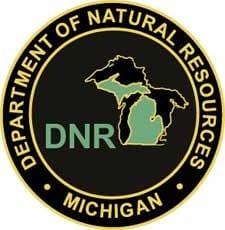

USA -(Ammoland.com)- Earlier this week, the Michigan Department of Agriculture and Rural Development announced the finding of bovine tuberculosis (TB) in a sample taken from a 2-year-old steer from Newaygo County.
The animal was identified as possibly diseased and removed from the human food chain by the U.S. Department of Agriculture Food Safety Inspection Service.
In accordance with the Michigan Department of Natural Resources and MDARD joint bovine TB response plan, the DNR is responsible for testing a minimum of 30 free-ranging deer within a 3-mile radius of the affected facility.
Annually, the DNR tests thousands of white-tailed deer for bovine TB statewide. Due to this new steer finding, hunters within the 3-mile radius of this facility will be asked to voluntarily submit their deer heads for TB testing. This increased surveillance effort is planned to ensure the disease has not spilled over into the deer population.
“Within the northeastern Lower Peninsula, we continue to work to manage bovine TB within area deer populations,” said Dr. Kelly Straka, DNR wildlife veterinarian. “We appreciate all that hunters do to help us fight wildlife disease across Michigan. This surveillance is a routine part of our state’s TB response. It is critical that hunters understand there is no link between CWD and TB.”
Bovine TB is a bacterial disease that can be spread between wildlife populations and other mammals, including humans. In Michigan, TB is primarily found in the northeast Lower Peninsula, where MDARD conducts surveillance in cattle herds.
Using whole genome sequencing, it was determined that the infected animal from Newaygo County was most likely exposed to other cattle from northeastern Lower Peninsula. The disease has never been detected in deer in Newaygo County.
In the northeastern Lower Peninsula, deer management units 452 and 487 have been established to help manage the prevalence of bovine TB in white-tailed deer in this area where, historically, cattle herds have been found to be infected.
This response is standard protocol for the DNR when cattle are found positive for TB outside Deer Management Unit 487, which does happen from time to time. Bovine TB was last detected in October 2016 from a cattle facility in Huron County.
The Michigan Department of Natural Resources is committed to the conservation, protection, management, use and enjoyment of the state’s natural and cultural resources for current and future generations.
For more information, go to their website.
